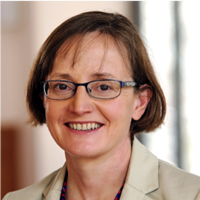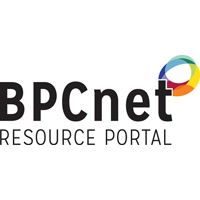
CMD-IT 2022 Academic Careers Workshop: Applications Due April 4
The Center for Minorities and People with Disabilities in Computing and Information Technology (CMD-IT) 2022 Academic Careers Workshop will be held in person, June 9-12 in Chicago, IL.

The Center for Minorities and People with Disabilities in Computing and Information Technology (CMD-IT) 2022 Academic Careers Workshop will be held in person, June 9-12 in Chicago, IL.

CRA Directors Erik Russell and Burçin Tamer share inspiring stories of CRA broadening computing efforts on the Modern Figures Podcast.

On Wednesday, February 2 at 8 AM PST the Networking Channel will host a webinar titled, “How can we improve diversity and inclusion in the systems and networking community?”

The Computing Research Association recently announced Dr. Tracy Camp will become its next Executive Director starting July 1, 2022. Camp is currently the Department Head of Computer Science at Colorado School of Mines. She brings to the role strong experience as a leader in the computing research community at the national level, a history spearheading diversity, equity and inclusion initiatives in computing, and a detailed vision for leading the organization into the future.

CRA-WP welcomes your nominations for the Early Career Awards honoring Anita Borg and Clarence “Skip” Ellis. Nominations are due February 15, 2022, at 11:59 PM ET.
Learn more about the award eligibility and the nomination process: https://cra.org/cra/cra-wp/early-career-awards

BPCnet.org will be hosting its last working session for this year on Thursday, November 18th, 2021, from 3:00 PM- 5:00 PM ET.

The National Science Foundation (NSF) Directorate of Computer and Information Sciences and Engineering (CISE) announced an updated Core Programs solicitation (NSF 21-616) with new guidelines for submitting Project Broadening Participation in Computing (BPC) Plans.

CRA will be represented during the upcoming DOE Advanced Scientific Computing Advisory Committee (ASCAC) meeting. Attend CRA session “Taulbee, Talent, and Trends” from 1:00-1:45 PM ET on September 30, 2021.

Today, May 20, 2021, marks the tenth Global Accessibility Awareness Day (GAAD). The purpose of GAAD is to get everyone talking, thinking and learning about digital access/inclusion and people with different disabilities. In honor of GAAD, we’re sharing resources to learn more about accessibility in higher education.

In response to the National Science Foundation (NSF) Computer and Information Science and Engineering (CISE) Directorate’s recently announced CSGrad4US Fellowship program, the Computing Research Association’s Education (CRA-E) and Widening Participation (CRA-WP) committees are working to develop a CSGrad4US Mentoring Program for recipients of the CSGrad4US Fellowship.

The National Science Foundation (NSF) Computer and Information Science and Engineering (CISE) Directorate has announced the new CSGrad4US Graduate Fellowship program that aims to increase the number of diverse, domestic graduate students pursuing research and innovation careers in the CISE fields. The new fellowship, which will provide 3-year fellowship opportunities for new Ph.D. students in the computing disciplines, was released in response to the increased demand for people with a Ph.D. in computer science (CS), the continued decrease of domestic students pursuing research and completing a Ph.D., and the overall small number of bachelor’s degree recipients in CS pursuing graduate school.

The National Science Foundation (NSF) Directorate for Education and Human Resources (EHR) is soliciting proposals for projects addressing systemic racism in science, technology, engineering and mathematics (STEM) education and workforce development through research and practice. Those who have been impacted by the inequities caused by system racism should be the primary focus for all proposals. Competitive proposals will be clear with respect to how the work will advance racial equity and address system racism.

In June 2020, a community of Black people in computing from around the world published an open letter, initiated by the authors, and a call for action[b] to the global computing community. The letter began with, “The recent killing of George Floyd by Minneapolis Police has sparked a movement that began at the birth of our nation. Though George Floyd may have been the most recent instance, we should not forget the lives of Breonna Taylor, Ahmaud Arbery, Nina Pop, Tony McDade, Sandra Bland, Trayvon Martin, Aiyana Stanley-Jones, Philando Castille, Tanisha Anderson, Atatiana Jefferson, Eric Garner, Charleena Lyles, Eula Love, Michael Brown, Khalif Browder, Botham Jean, Tamir Rice, Latasha Harlins, Amadou Diallo, Mary Turner, Emmett Till, and too many other Black people who have been murdered …”

At SIGCSE 2021, CRA’s Betsy Bizot will be a panelist for the session, “Exploring the Data on Dual Pandemics: How Racism and COVID-19 Have Impacted the Computing Community“. Bizot will discuss the results from two CRA surveys about the COVID-19 disruption from summer 2020 and a few tidbits from this year’s CRA Taulbee Survey ahead of full publication in May. The session will be held from 1:00 PM – 2:45 PM EDT on Wednesday, March 17.

Mary Jane Irwin was selected to receive the 2021 A. Nico Habermann Award in recognition of her more than 30 years of diversity efforts, both in academia and in professional organizations. James Kurose was selected to receive the 2021 Distinguished Service Award in recognition of his exemplary service to the computing research community. Through a career spanning more that 35 years, he has distinguished himself as national leader in numerous impactful service roles in the computing research community.

A video recording of the “Standing Against Racial Injustices” conversation series organized by the Center for Minorities and People with Disabilities in IT (CMD-IT) is now available. If you missed the event, we encourage you watch and share!

The goal of the 2021 CMD-IT Academic Careers Workshop is to mentor assistant- and associate-level faculty, senior doctoral students, and postdocs in computing about academic careers.

CRA Board Member Timothy M. Pinkston has organized and will moderate the panel, “Valuing Diversity, Equity, and Inclusion in Our Computing Community” from 1:30 to 3 PM (EST) on March 3rd at this year’s co-located HPCA’21, PPoPP’21, CGO’21 and CC’21 conferences (virtual due to COVID-19).

Inspire or encourage a student to try computer science, and let them know they belong. Together let’s change the face of computer science.

Part 2 of the CMD-IT Standing Against Racial Injustice conversation brings together a group of Black industry tech professionals for a breadth of conversation on how we create the change we want to see and how Commanding Our Voices drives Inclusion, Innovation and Impact to our community, society and the nation.

Numerous events of 2020 have placed a national spotlight on the inequities and inequalities that are present in K-16 education and society at large. In this conversation, Dr. Nicki Washington discusses how her personal journey in computing influenced her research on identity in computing, including the development of her “Race, Gender, Class, and Computing” course and why “teaching is political.”

Listen to NSF AD for CISE Margaret Martonosi discuss the importance of Departmental BPC Plans in this new video.

The Computing Research Association (CRA) and the National Science Foundation’s (NSF) Directorate for Computer and Information Science and Engineering (CISE) are calling upon the academic community to create and submit Departmental BPC Plans to BPCnet.org.
Departmental BPC Plans are important because they help departments:
Undergraduate computing departments have long suffered from issues related to diversity, equity, and inclusion (DEI). However, there has been, to date, no large-scale effort that focuses on addressing issues of systemic racism and bias that directly impact not only students from minoritized groups, but also faculty (as issues of race, gender, and intersectionality impact hiring, […]

The National Science Board (NSB) has named computer scientist and disability advocate Richard Ladner as the 2020 recipient of its Public Service Award. This award is granted to individuals and groups that have contributed substantially to increasing public understanding of science and engineering.
CRA is dedicated to creating an environment that is more welcoming, just, and equitable to all. In the Communications of the ACM article, “CS Teachers, It’s (Past) Time To Learn About Race,” Mark Guzdial encourages CS teachers to make changes to CS education that ensure everyone is welcome and supported.

The Computing Research Association (CRA) is hosting the second workshop in its series of Departmental BPC Plan workshops on August 6-7, 2020.
In this workshop, academic departments will learn about the NSF CISE requirements and expectations for BPC Plans. The workshop will also cover in-depth discussions on BPC Plan components, have BPC experts available for Q&A, and provide time for departments to discuss ideas and make future plans. Following the workshop, participants will have the opportunity to receive additional feedback as they continue to develop and refine their plans.
CRA is dedicated to creating an environment that is more welcoming, just, and equitable to all. Many want to take action in this area but are not sure how. Manuel A. Pérez-Quiñones wrote an article, “What Can CS Departments Do?” detailing a set of recommendations for computing departments to improve inclusiveness: Some of my recommendations […]
CRA is dedicated to creating an environment that is more welcoming, just, and equitable to all. Last month, the Black in Computing group and Allies put out “An Open Letter & Call to Action to the Computing Community” with a curated list of actionable items.

To support departments developing a Departmental BPC Plan, the Computing Research Association (CRA) will host a series of workshops funded by NSF. The first two workshops in this series will be held virtually on July 13-14, 2020 and August 6-7, 2020.
These two workshops will present the same content on BPC plans, and include hands-on activities and real-time feedback for writing these plans. At the end of the workshop, the participants will have their own draft Departmental BPC Plan. Following the workshops, the participants will also have the opportunity to receive additional feedback as they continue to refine their BPC plans.
